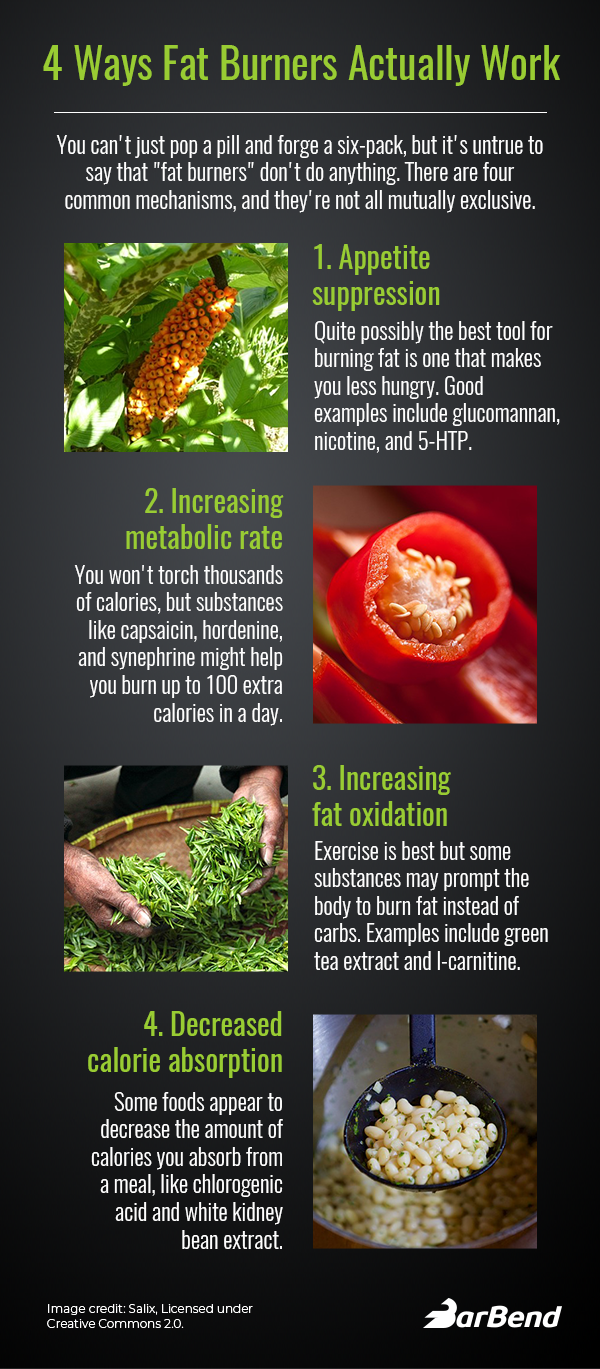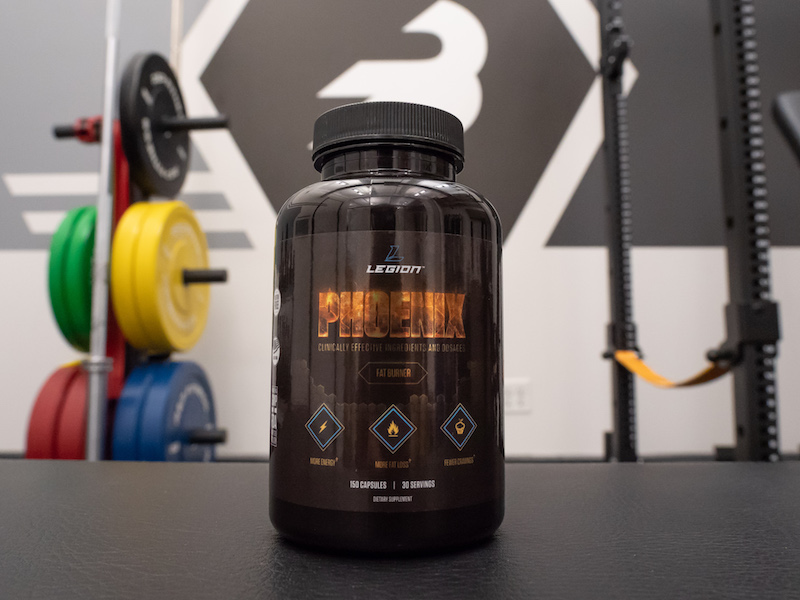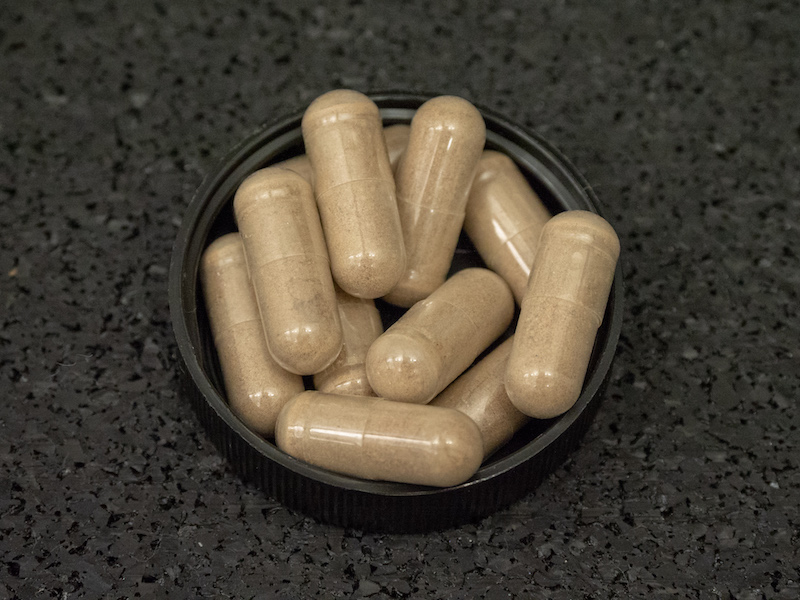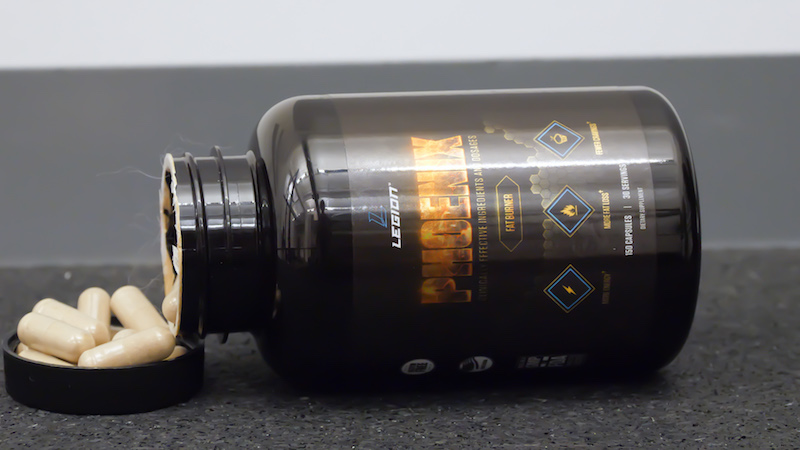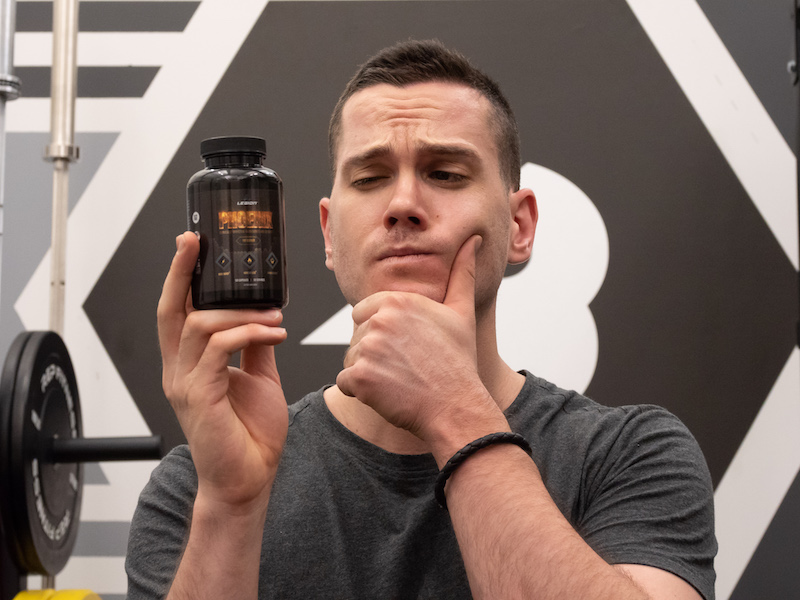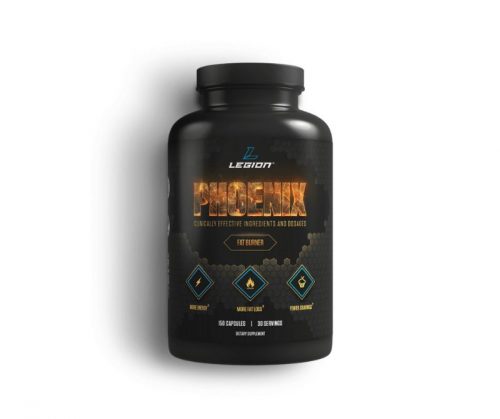You can’t pop a pill to get a six pack, but you can pop a pill that makes it easier to burn fat. It might be hard to believe but the science is actually pretty solid, provided you’re paying attention and using the supplements in the right way.
Today we’re talking about Phoenix, the “fat burner” supplement sent to us by Legion Athletics and one of the most talked about products in this niche.
One of the things that distinguishes Legion as a company is the fact that unlike a lot of their competitors they have completely transparent dosing — no proprietary blends here — and when they make a claim on their website they always link to at least one study. One study isn’t always definitive, of course, but what we’re saying is that Legion tries a lot harder than a lot of other companies to back up the assertions they make with actual science.
Kurtis Frank, the former research director of the independent nutrition research organization Examine.com, is the man who designed this product, which also gives it a lot of currency among the more evidence-based athletes out there. (We’ve interviewed Frank for several articles, like these on Vitamin D, magnesium, and natural testosterone boosters.)
In today’s review we’re going to talk about what fat burners actually do, the ingredients, the potential effects, the price, and we’re going to interview a bodybuilder and researcher who claims this product helped him drop from 8 percent to 5 percent body fat.
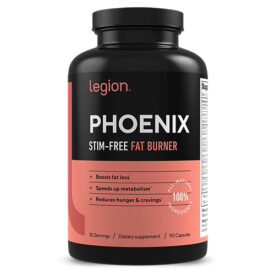
Editor’s note: The content on BarBend is meant to be informative in nature, but it should not be taken as medical advice. The opinions and articles on this site are not intended for use as diagnosis, prevention, and/or treatment of health problems. Speak with your physician before undertaking any new weight loss regimen.
How Fat Loss Pills Work
So how on Earth can pills help you shred fat? There are four main ways they work.
1. Appetite Suppression
Plain old “eating less” is far and away the most effective way to lose body fat which is why we’ve put appetite suppressants at the top of our list. Struggling with the desire to eat a lot, whether it’s a physiological need or a mental habit, can be the toughest part of losing weight. Popular appetite suppressants include glucomannan or psyllium husk, which expand in the stomach, but there are some products that work more indirectly by affecting mood or hormones, like nicotine or 5-HTP.
2. Increased Thermogenesis
This refers to the idea of increased calorie burn: you take a product and the body burns more calories than it would have otherwise. A really popular ingredient for this purpose is capsaicin, an ingredient that makes peppers spicy, which some studies have suggested can help you burn 50 to 100 extra calories per day.(1)(2)(3)
[Don’t miss our pick for the best women’s fat burner!]
3. Increased Fat Oxidation
This is basically coaxing the body into burning more fat for fuel instead of using stored carbohydrates. Far and away the best way to do this is with exercise, but some substances, like green tea extract and l-carnitine, may also increase the amount of fat burned by the body.(4)(5)(6)(7)(8)
4. Decreased Calorie Absorption
Finally, there are some compounds like white kidney bean extract or green coffee bean extract which might decrease the amount of calories you absorb from a meal.(9)(10)
Note that these categories aren’t mutually exclusive. For example some ingredients, like capsaicin, appear to influence both thermogenesis and fat oxidation. Nonetheless, this is a useful lens through which to view these products.
So where does Phoenix fit into all this?
Legion Phoenix Ingredients and Effects
Each serving of Legion Phoenix contains vitamin B, carralluma fimbriata, forskolin, caffeine anhydrous, L-DOPA, 5-HTP, back ginger, and fucoxanthin. With these ingredients, Phoenix appears to focus on two elements of fat burners, fat oxidation and increased thermogenesis, with some elements of appetite suppression as well. Here’s what two of the more unique ingredients, 5-HTP and forskolin, do.
5-HTP
5-HTP is very common in fat burners because it appears to help with serotonin production, according to studies published in the American Journal of Clinical Nutrition and the Journal of Neural Transmission. (13)(14) Serotonin is known for its link with mood — exercise and certain foods help to release it. It also seems to help increase satiety from the food you eat, thereby indirectly helping to reduce appetite.
“I really like the fact there’s 5-HTP in there because your mood starts to change once your calories start getting low for an extended period of time,” says Barakat. “5-HTP definitely helped me, whether it was due to serotonin being increased or not it definitely made my mood better overall. I think Phoenix really played a big role in my not feeling hangry all the time.”
Forskolin
Sourced from the Indian herb Coleus forskohlii, forskolin seems to prompt the cells to produce more ATP, a form of cellular energy, which means that taking forskolin may help the body burn through energy reserves. A 2005 study in Obesity Research found that forskolin decreased body fat, increased bone strength, and even produced a slight increase in testosterone.(15)(16)
Note that which it comes in both caffeinated and uncaffeinated versions, Legion suggests taking Phoenix with caffeine, as that can enhance the thermogenic effects, but it’s not completely necessary.
[Read more: 8 preworkout ingredients to help increase focus.]
Legion Phoenix Price
One bottle costs between about $50 for 30 servings of 3 pills each.
It’s hard to compare different fat burners’ costs because they vary so much with ingredients, but we’ve generally found that $2 per day is what you can expect for the higher quality ones. Legion comes to about $1.67 per day, which is pretty reasonably priced.
The Verdict
Legion Phoenix Pros
- Well researched ingredients
- Reasonably priced
- Transparent labeling
Legion Phoenix Cons
- Not a big focus on appetite suppression
- May not be great for sensitive stomachs
This is a pretty darn solid product. It’s well priced, the ingredients are transparent and the dosages are backed with a lot of research.
I think there could have been more of an emphasis on appetite suppression — while 5-HTP will probably help here, there’s no glucomannan or psyllium or any ingredients that expand in the stomach like you’ll find in a product like Leanbean. The focus is more on fat oxidation and increasing thermogenesis, so it’s worth keeping that in mind.
There are also anecdotal reports online that this can cause indigestion among folks with sensitive stomachs. It’s a pretty small minority, but there are enough of these reports to suggest that it’s not a one-off effect that one person had. If you rarely experience indigestion, though, it seems unlikely Phoenix will negatively affect you.
All in all, this product is head and shoulders above most of the industry, which is rife with products that underdose ingredients or use proprietary blends. As we’ve found before with their other products, Legion has done their homework.
References
1. Janssens PL, et al. Acute effects of capsaicin on energy expenditure and fat oxidation in negative energy balance. PLoS One. 2013 Jul 2;8(7):e67786.
2. Chaiyata P, et al. Effect of chili pepper (Capsicum frutescens) ingestion on plasma glucose response and metabolic rate in Thai women. J Med Assoc Thai. 2003 Sep;86(9):854-60.
3. Galgani JE, et al. Effect of dihydrocapsiate on resting metabolic rate in humans. Am J Clin Nutr. 2010 Nov;92(5):1089-93.
4. Thielecke F, et al. Epigallocatechin-3-gallate and postprandial fat oxidation in overweight/obese male volunteers: a pilot study. Eur J Clin Nutr. 2010 Jul;64(7):704-13.
5. Venables MC, et al. Green tea extract ingestion, fat oxidation, and glucose tolerance in healthy humans. Am J Clin Nutr. 2008 Mar;87(3):778-84.
6. Hursel R, et al. The effects of green tea on weight loss and weight maintenance: a meta-analysis. Int J Obes (Lond). 2009 Sep;33(9):956-61.
7. Pistone G, et al. Levocarnitine administration in elderly subjects with rapid muscle fatigue: effect on body composition, lipid profile and fatigue. Drugs Aging. 2003;20(10):761-7.
8. Malaguarnera M, et al. Acetyl L-carnitine (ALC) treatment in elderly patients with fatigue. Arch Gerontol Geriatr. 2008 Mar-Apr;46(2):181-90.
9. Celleno L, et al. A Dietary supplement containing standardized Phaseolus vulgaris extract influences body composition of overweight men and women. Int J Med Sci. 2007 Jan 24;4(1):45-52.
10. Thom E. The effect of chlorogenic acid enriched coffee on glucose absorption in healthy volunteers and its effect on body mass when used long-term in overweight and obese people. J Int Med Res. 2007 Nov-Dec;35(6):900-8.
11. Stohs SJ, et al. Effects of p-synephrine alone and in combination with selected bioflavonoids on resting metabolism, blood pressure, heart rate and self-reported mood changes. Int J Med Sci. 2011 Apr 28;8(4):295-301.
12. Dulloo AG. Ephedrine, xanthines and prostaglandin-inhibitors: actions and interactions in the stimulation of thermogenesis. Int J Obes Relat Metab Disord. 1993 Feb;17 Suppl 1:S35-40.
13. Cangiano C, et al. Eating behavior and adherence to dietary prescriptions in obese adult subjects treated with 5-hydroxytryptophan. Am J Clin Nutr. 1992 Nov;56(5):863-7.
14. Ceci F, et al. The effects of oral 5-hydroxytryptophan administration on feeding behavior in obese adult female subjects. J Neural Transm. 1989;76(2):109-17.
15. Godard MP, et al. Body composition and hormonal adaptations associated with forskolin consumption in overweight and obese men. Obes Res. 2005 Aug;13(8):1335-43.
16. Greenway FL, et al. Regional fat loss from the thigh in obese women after adrenergic modulation. Clin Ther. 1987;9(6):663-9.
